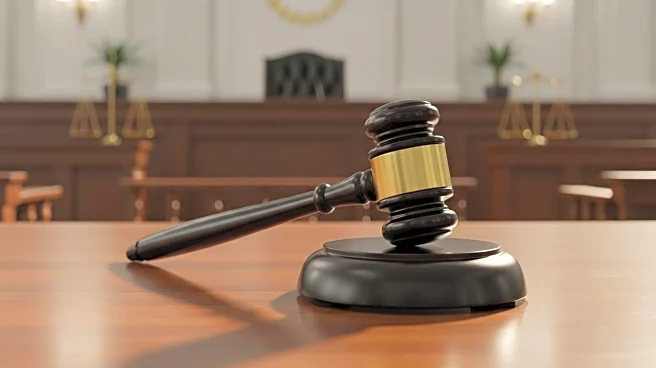What's Happening?
The Supreme Court has declined to hear Alex Jones' appeal against a $1.5 billion defamation judgment related to his false claims about the Sandy Hook school shooting. Jones had argued that without intervention, his website Infowars could be transferred to The Onion, a satirical news site, to fund payments to the victims' families. The court's decision leaves the state court ruling intact, which found Jones liable for defamation and other violations. Jones' lawyer warned that the acquisition of Infowars by The Onion would lead to its destruction. The Sandy Hook families' lawyer expressed satisfaction with the Supreme Court's decision, emphasizing the importance of holding Jones accountable for the harm caused by his claims.
Why It's Important?
The Supreme Court's decision is significant as it upholds a substantial financial penalty against Alex Jones, reinforcing the legal consequences of spreading false information. This ruling serves as a precedent for similar defamation cases, highlighting the judiciary's role in addressing misinformation and its impact on victims. The decision also underscores the potential financial and operational repercussions for media entities that engage in harmful conspiracy theories. For the Sandy Hook families, the ruling represents a step towards justice and accountability, potentially influencing public discourse on the responsibilities of media figures in disseminating information.
What's Next?
With the Supreme Court's rejection, Jones faces the challenge of complying with the judgment, which may involve significant financial restructuring or bankruptcy proceedings. The potential acquisition of Infowars by The Onion remains a possibility, contingent on ongoing legal and financial maneuvers. The Sandy Hook families are likely to pursue enforcement of the judgment, seeking compensation for the damages caused by Jones' false claims. This case may prompt further scrutiny of media practices and the legal frameworks governing defamation and misinformation.
Beyond the Headlines
The case raises broader ethical questions about the balance between free speech and accountability in media. It highlights the cultural impact of conspiracy theories and the societal need for mechanisms to address and rectify misinformation. The legal proceedings may influence future legislative efforts to strengthen defamation laws and protect victims of false narratives. Additionally, the case could lead to increased public awareness and dialogue about the responsibilities of media figures and platforms in shaping public perception.











